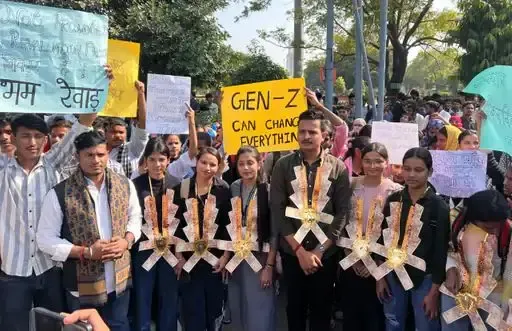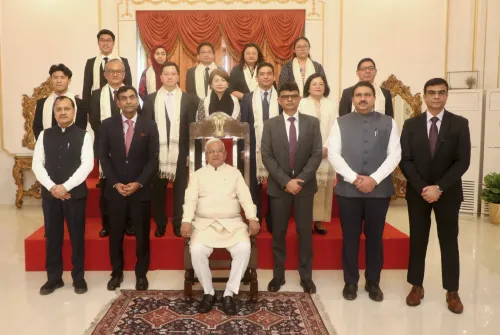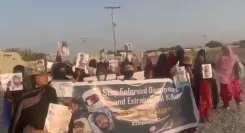What Led to Chaos at Rajasthan University?

Synopsis
Key Takeaways
- Tensions rose at Rajasthan University due to alleged exam irregularities.
- Students protested against increased re-evaluation fees.
- Police intervention led to multiple detentions.
- Students accused authorities of suppressing their voices.
- The protest raised questions about the future of student rights.
Jaipur, Nov 19 (NationPress) A wave of unrest swept through the Rajasthan University campus on Wednesday when police resorted to a lathi-charge against students voicing their concerns over alleged discrepancies in exam results and the evaluation procedures.
The protests began after law enforcement detained eight students, including prominent student leader Shubham Rewad, during a rally on Tuesday.
Students voiced their grievances, claiming that the university administration had sharply raised the re-evaluation fees, imposing an undue financial strain. They argued that numerous students are being intentionally failed by a single mark, compelling them to seek re-evaluation and bear the exorbitant charges.
More than seven students, including another leader, Kamal Chaudhary, were taken into custody amidst the unrest.
The protest had a symbolic element, with many students donning garlands made of currency notes to draw attention to what they perceive as unjust and excessive fees associated with the 'not promoted' and re-evaluation processes.
When students sought accountability from the university authorities, they reported that officials responded with force rather than engaging in dialogue.
In an act of defiance, several female students ascended the front of a police vehicle to obstruct its movement, chanting slogans against law enforcement.
The demonstration escalated as students shouted slogans outside the administrative block and the Vice-Chancellor’s office, with some even climbing onto the roof of the building.
Police moved in to disperse the crowd and took several protesters into custody. Student leaders criticized the police actions, claiming that raising concerns about academic irregularities has been unjustly criminalized.
They accused the police of serving as a “protective shield” for the university administration instead of safeguarding students’ rights.
Protesters assert that the university is imposing additional, and potentially illegal, fees for re-evaluating semester exam papers. Rather than addressing these issues, they contend that the authorities opted to suppress peaceful protests through force.
“If peaceful protest within democratic norms is viewed as wrongdoing, what remains of students’ rights and freedoms?” a student participant questioned.









